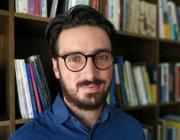The teaching area: drawing from Bourdieu’s field theory
- Citation:
- Ostermann, F, Rezende F, Nascimento MM, Massi L. 2022. The teaching area: drawing from Bourdieu’s field theory, 9. Educação e Pesquisa. 48: Faculdade de Educação da Universidade de São Paulo
Abstract:
Abstract Pierre Bourdieu’s theoretical contributions pave the way for studying a wide range of social spaces, such as the academia. Through using Bourdieusian fields, our objective was to investigate whether the teaching area of the Coordination for the Improvement of Higher Education Personnel (CAPES) can be considered a relatively autonomous scientific field. Therefore, this study is motivated by two research questions: 1) what is the distribution of scientific capital in the teaching area; and 2) what are the implications of this distribution on its constitution as a scientific field. By crossing data on professors of programs in the field of education with the evaluation grade assigned by Capes to each of these programs, our analysis revealed that this area does not constitute a scientific field. Differently from what happens in well-established fields, most teaching advisors come from many different scientific backgrounds and do not recognize this field’s specific intellectual production as scientific capital. Assuming that the existing disputes between professors with less and more scientific capital can generate new conformations in the area, a possible structure could be a stabilization of the subgroup of professors with greater scientific capital and its constitution as a scientific field, whose agents become increasingly aware that their cognitive structure and ideals of education/research are different from what Capes intended to homogenize with the creation of a teaching area. We believe that our results can be a reference for critical reflection on the structure of the field of teaching, which is still driven by its agents.
Notes:
n/a
